Results
-
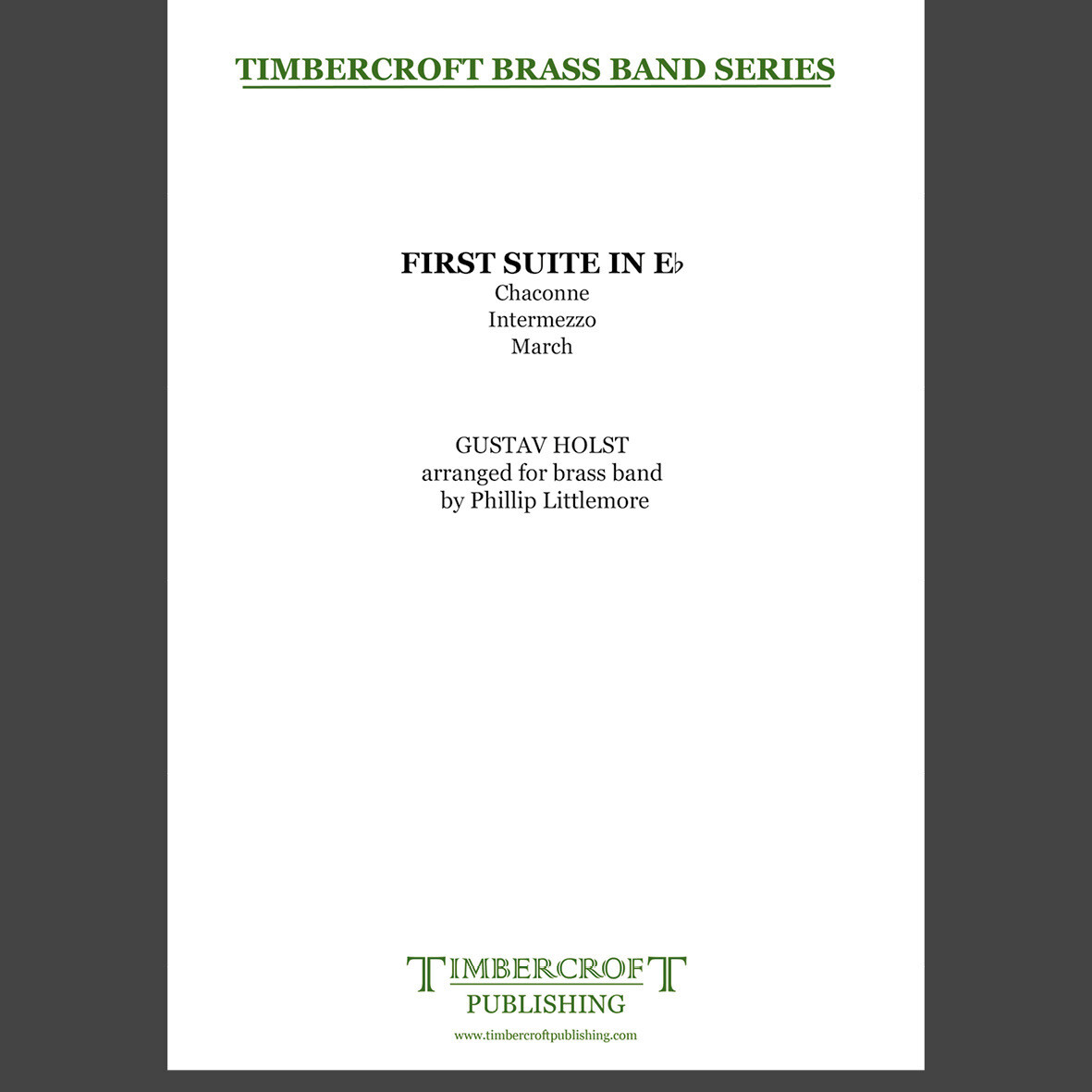 £55.00
£55.00First Suite in E flat - Gustav Holst arr. Phillip Littlemore
Although completed in 1909, Gustav Holst's First Suite in E flat received its official premiere 11 years later at the Royal Military School of Music at Kneller Hall, on 23rd June 1920. There are three movements in the suite: Chaconne, Intermezzo and March. Holst himself said "As each movement is founded on the same phrase, the suite be played right through without a break." The Chaconne begins with a ground bass, repeated throughout the ensemble sixteen times as varying instrumental textures and variations of the theme are layered within it. The Intermezzo is light and brisk and features many soloistic passages. The March consists of two themes, the opening is a light march contrasted with a longer, more lyrical second theme. The movement concludes with both themes superimposed on one an another.This brass band arrangement includes the section omitted from the first movement of the Sydney Herbert transcription. Duration: 10'Difficulty: 2nd Section and above
Estimated dispatch 5-7 working days
-
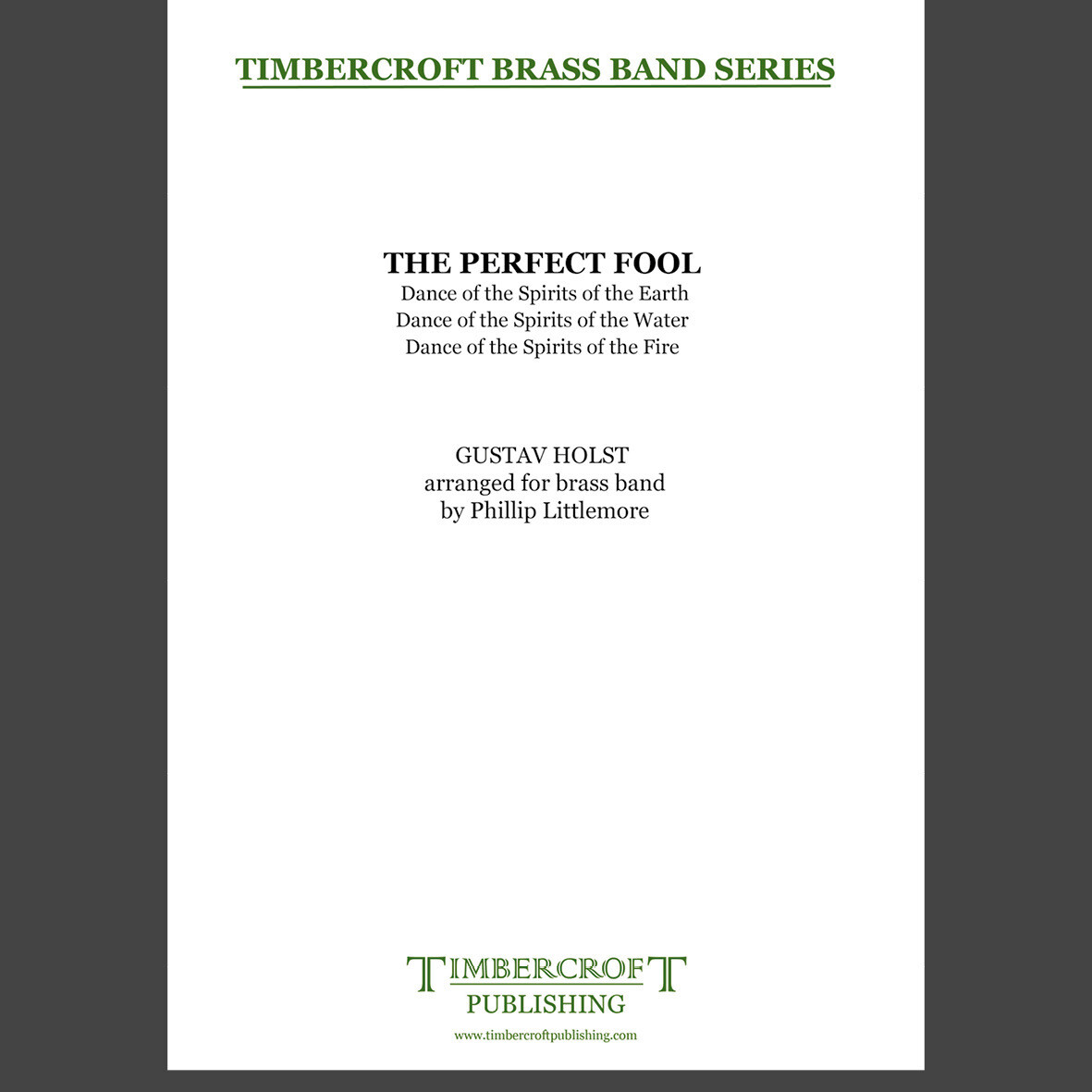 £55.00
£55.00Perfect Fool, The - Gustav Holst arr. Phillip Littlemore
The music for The Perfect Fool is taken from the comic opera by Gustav Holst, written between 1918 and 1922. The opera received its premiere at Covent Garden, London on 14th May 1923. This arrangement consists of the three dances from the ballet which starts the work: Dance of Spirits of Earth, Dance of Spirits of Water and Dance of Spirits of Fire.Duration: 9'30"Difficulty: 1st Section and above
Estimated dispatch 5-7 working days
-
 £55.00
£55.00Second Suite in F - Gustav Holst arr. Phillip Littlemore
Gustav Holst's Second Suite in F was composed in 1911, two years after the first suite, yet like his first suite it didn't receive its premiere until many years later, on 30th June 1922, at Royal Albert Hall in London and performed by band of The Military School of Music.The Suite uses English folk songs and folk dance tunes throughout. The opening march movement uses three tunes: a lively Morris Dance called Glorishears, the folk song Swansea Town and finally Cloudy Banks. The first two tunes are repeated to conclude the first movement. The second movement is a setting of I'll Love My Love, a sad story of a young maiden driven into Bedlam by grief over her lover being sent to sea by his parents to prevent their marriage. The Song of the Blacksmith follows with a lively hammer rhythms and the score actually asks for a blacksmith's anvil. The final movement is a fantasia based on the 16th Century English country-dance, The Dargason, with the Elizabethan love-song Greensleeves intertwined. This is a new brass band arrangement that has a lighter texture to that made by Sydney Herbert, restoring it to the original key of F and including sectioned omitted from the 1923 arrangement.Duration: c. 12 minutesDifficulty: 2nd Section and above
Estimated dispatch 5-7 working days
-
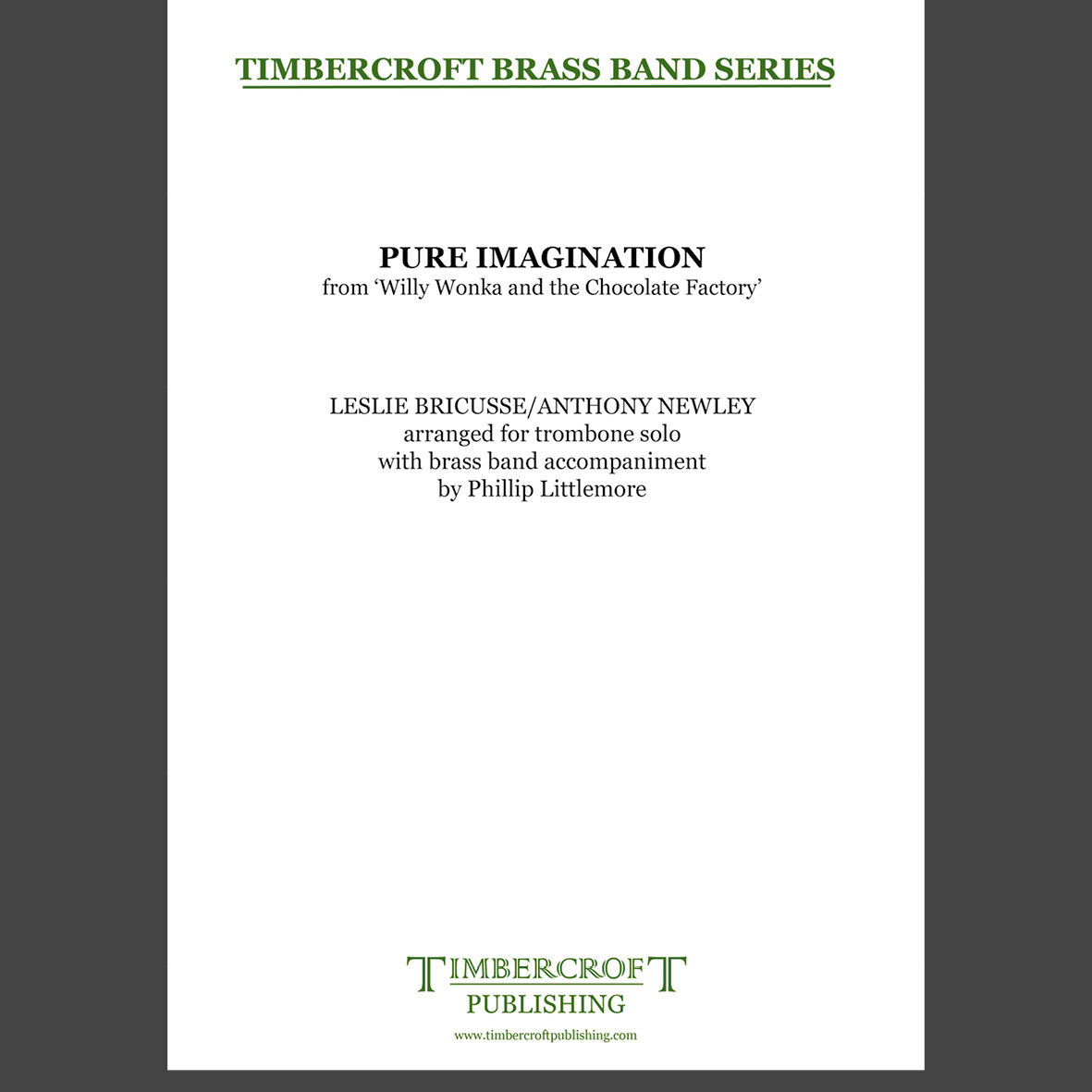 £30.00
£30.00Pure Imagination - Leslie Bricusse/Anthony Newley arr. Phillip Littlemore
The 1971 film musical Willy Wonka and The Chocolate Factory starred Gene Wilder in the title role. The music was written by composer/actor Anthony Newley, with lyrics provided by Leslie Bricusse, for which it received an Oscar nomination for Original Song Score.There are several well-known songs from the film, but perhaps the most famous is Pure Imagination, which is sung by Willy Wonka as the five children and their parents enter the Chocolate Room in Wonka's factory. It has been arranged as a trombone solo and has a simple jazz-like accompaniment.Duration: c. 3'00"Difficulty: Suitable for all (band accompaniment)
Estimated dispatch 5-7 working days
-
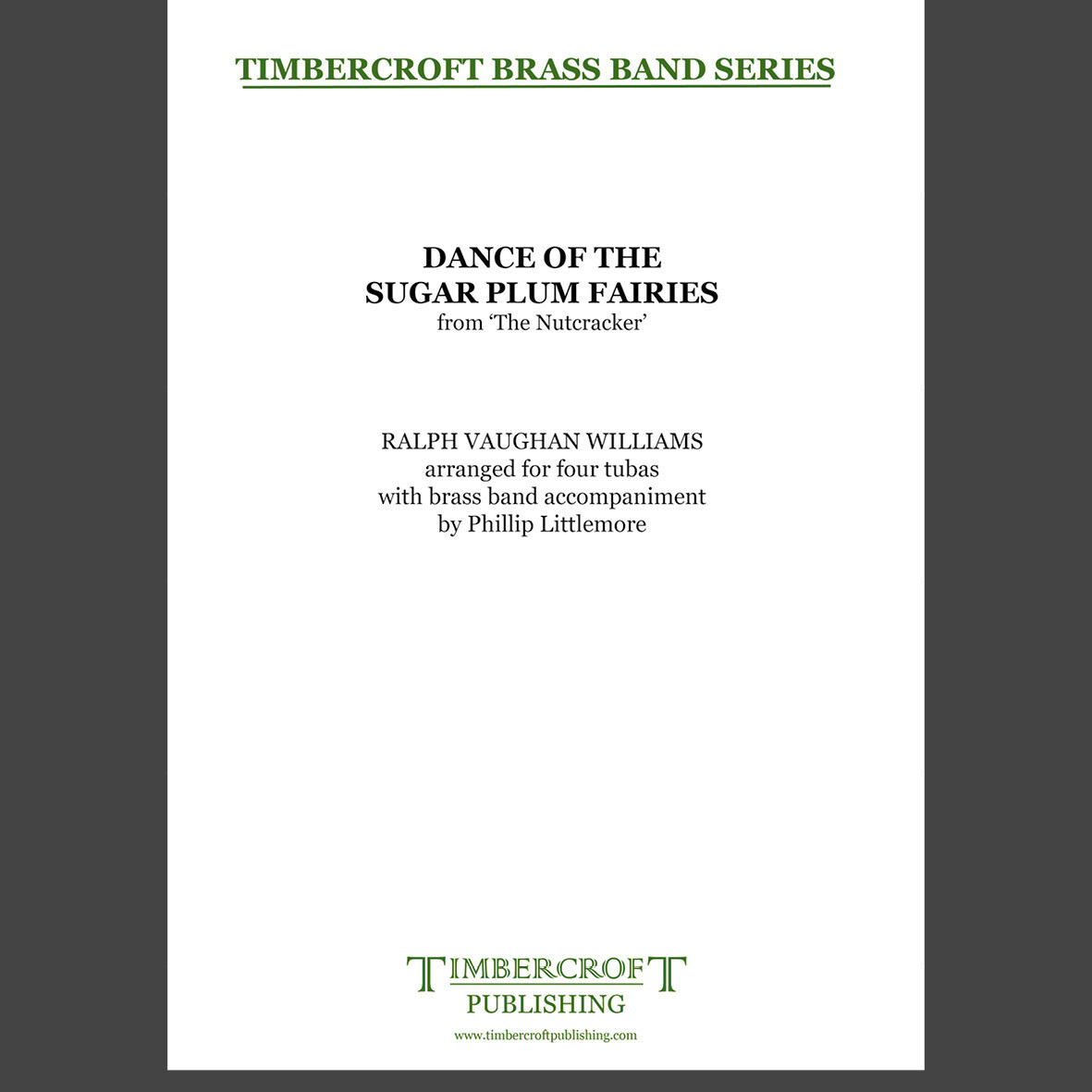 £30.00
£30.00Dance of the Sugar Plum Fairies - Pyotr Tchaikovsky arr. Phillip Littlemore
Dance of the he Sugar Plum Fairy needs no introduction as it is one of the most recognisable pieces of music. Tchaikovsky began writing his ballet The Nutcracker in 1891. It received its premiere in St. Petersburg, the following year. The Sugar Plum Fairy is the ruler of the Land of Sweets although she only dances in Act 2 of the work.This arrangement, retitled The Dance of the Sugar Plum Fairies, has the slightest of twists in that it features the four members of the bass section. There is no need for the players to dress as ballet dancers, but it does add to the spectacle!Duration: 3'00"Difficulty: 3rd Section and above
Estimated dispatch 5-7 working days
-
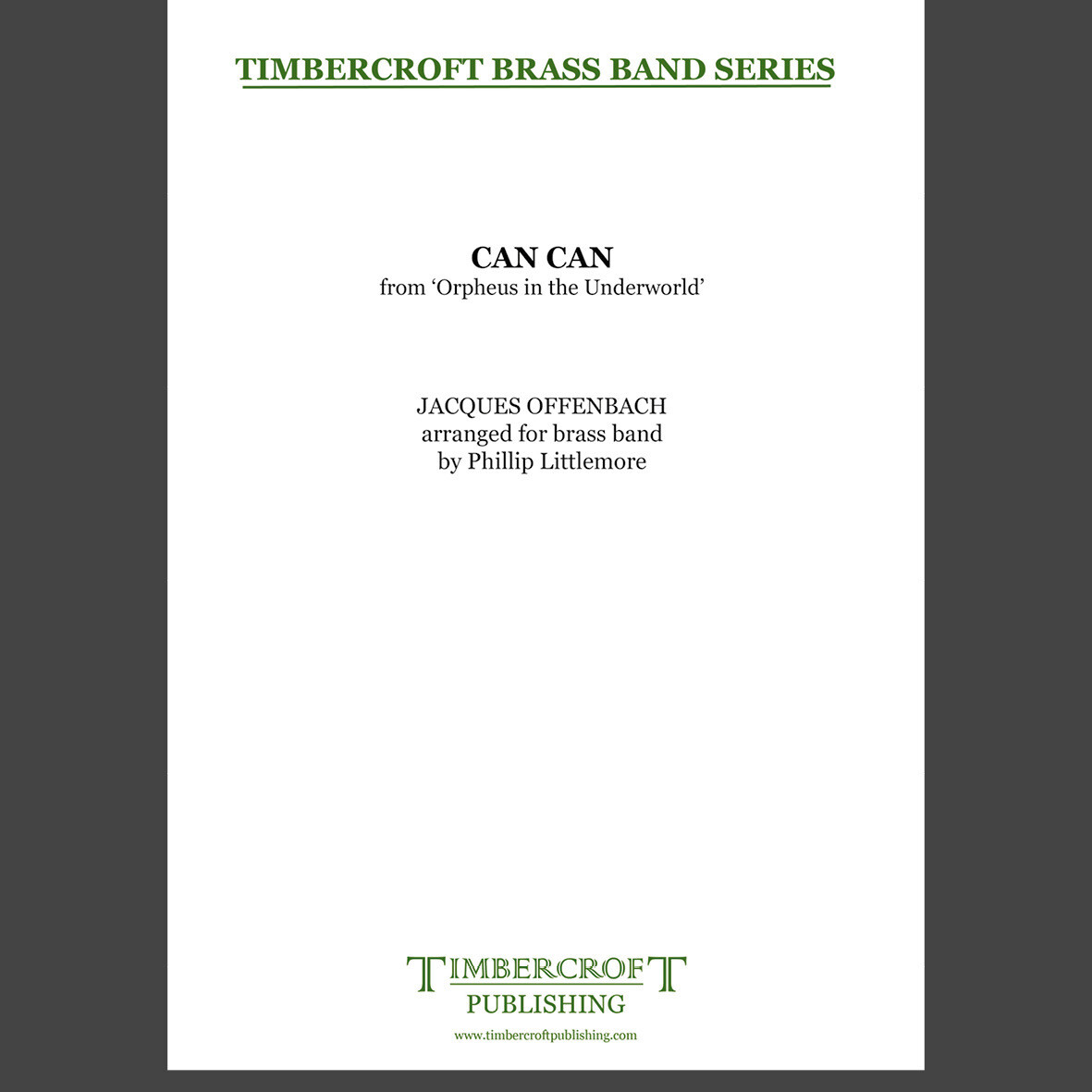 £30.00
£30.00Can-Can from Orpheus In The Underworld - Jacques Offenbach arr. Phillip Littlemore
Offenbach's Orpheus in the Underworld is an opera bouffon, and first performed in 1858. The operetta is an irreverent parody and scathing satire on Gluck and his Orfeo ed Euridice and culminates in the risque 'Infernal Galop'. The 'Infernal Galop' from Act II, is famous outside of classical music circles as the music for the Can-can. This brass band version is a straight-forward transcription directly from the orchestral original.Duration: 2'30"Difficulty: Suitable for all grades
Estimated dispatch 5-7 working days
-
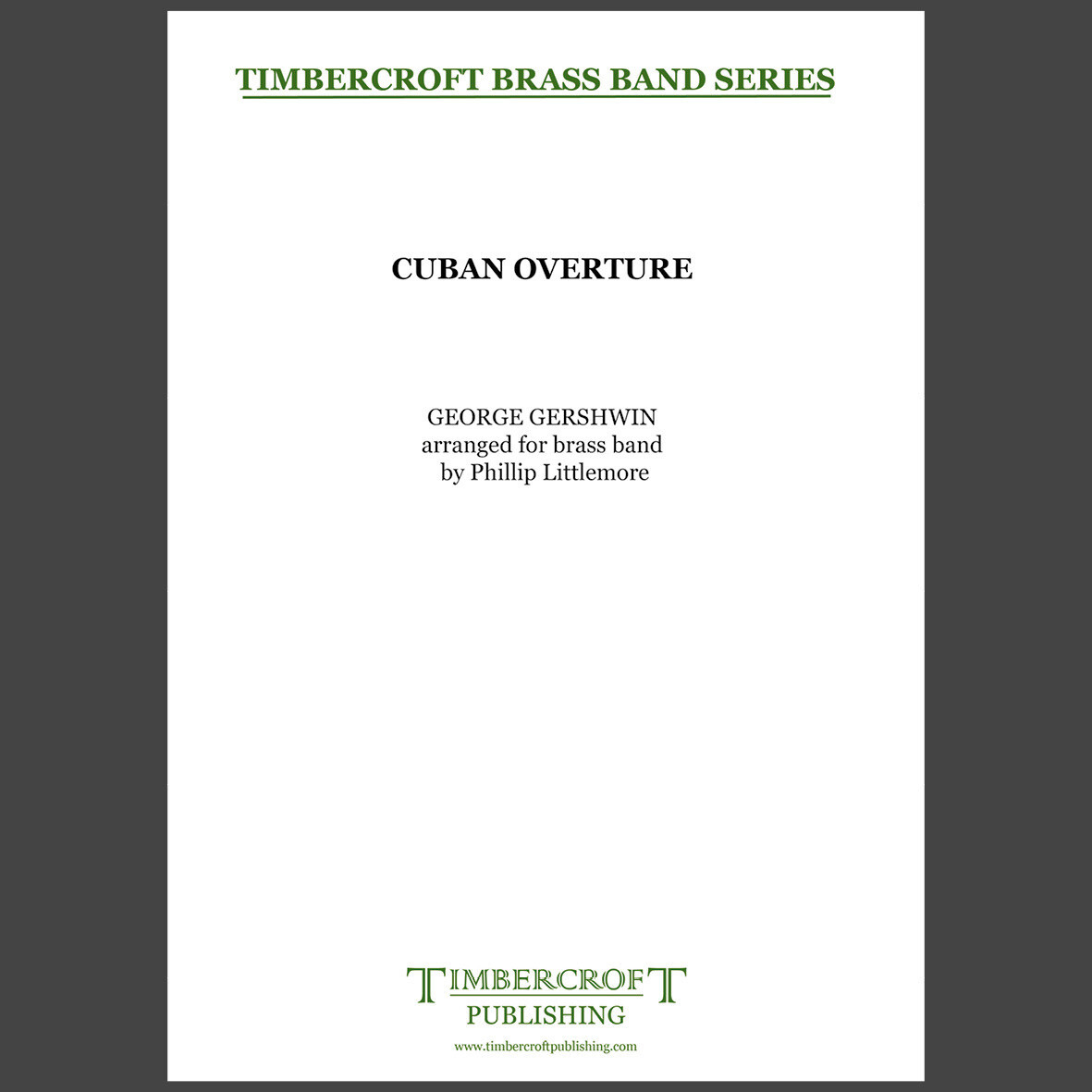 £45.00
£45.00Cuban Overture - George Gershwin arr. Phillip Littlemore
Originally entitled Rumba, the Cuban Overture was a was written some time following a two-week holiday which Gershwin took in Havana in February 1932. The overture is dominated by Caribbean rhythms and Cuban native percussion, with a wide spectrum of instrumental colour and technique. It is a rich and exciting work with complexity and sophistication, illustrating the influence of Cuban music and dance. Although it received it's premiere under the title Rumba, it was renamed Cuban Overture three months later at a benefit concert conducted by Gershwin at the Metropolitan Opera to avoid giving audience the idea that it was simply a novelty item. The new title provided, as the composer stated, "a more just idea of the character and intent of the music".Duration: 6'20"Difficulty: 1st Section and above
Estimated dispatch 5-7 working days
-
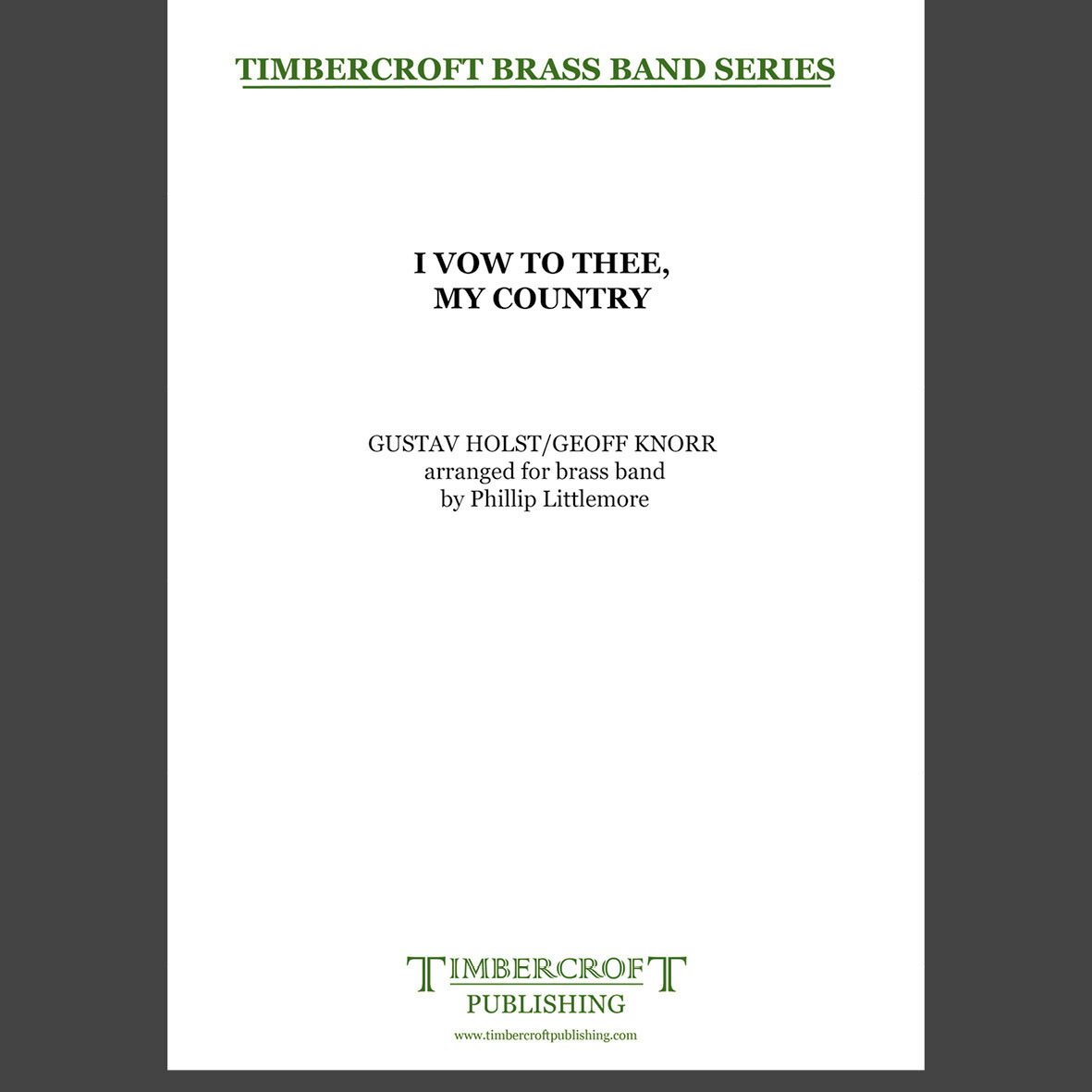 £30.00
£30.00I Vow To The, My Country - Gustav Holst/Geoff Knorr arr. Phillip Littlemore
Gustav Holst wrote his suite The Planets during the early years of the first world war. The expansive movement, Jupiter, contained a tune that Holst later used to set the poem by Cecil Spring-Rice, I Vow To Thee, My Country. Originally set for unison voices with orchestra, Holst adapted it as a hymn tune and called it Thaxted, named after the village where he lived for many years.The American composer, Geoff Knorr, incorporated Holst's music into his score for the strategy-based video game Civilisation V, where it is used to depict the England of Elizabeth I. It is from this music that this transcription is made.Although originally written in 1908 and entitled Urbs Dei, Spring-Rice revisited the text of his poem in January 1918 and significantly altered both the first and second verses to reflect his feelings about the war, and those that gave the ultimate sacrifice. He also renamed the poem with the title we know today. Because of its sentiment, it has now become a staple of Remembrance services.A video of this arrangement can be found here: I Vow To Thee, My CountryDuration: 5'40"Difficulty: Suitable for all
Estimated dispatch 5-7 working days
-
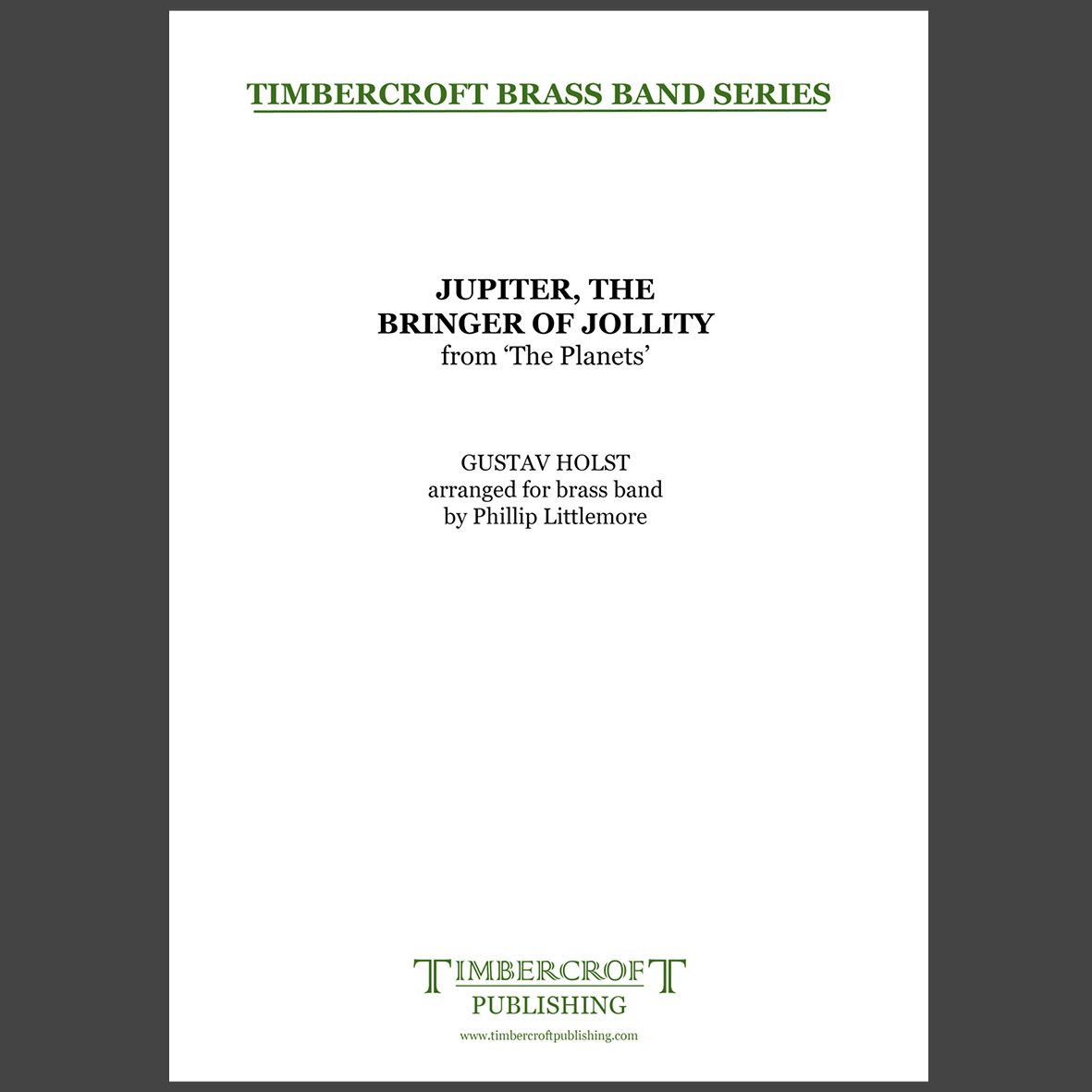 £45.00
£45.00Jupiter, The Bringer of Jollity - Gustav Holst arr. Phillip Littlemore
Holst first became interested in astrology around 1912/13 and so began the gestation for a series of pieces that would ultimately become the suite The Planets.The suite itself was written between 1914 and 1916 and with the exception of Mercury, which was written last, Holst wrote the music in the sequence we now know them, and thus did not present the inner planets of Mercury, Venus and Mars in their planetary order. Holst portrays Jupiter's characteristic "abundance of life and vitality" with music that is both buoyant and exuberant in equal measure. Driven by big tunes throughout, not least the solemn hymn-like (and later a patriotic song) I Vow to Thee, My Country. this piece is a magical tour de force.Duration: 8'20"Difficulty: 2nd Section and above
Estimated dispatch 5-7 working days
-
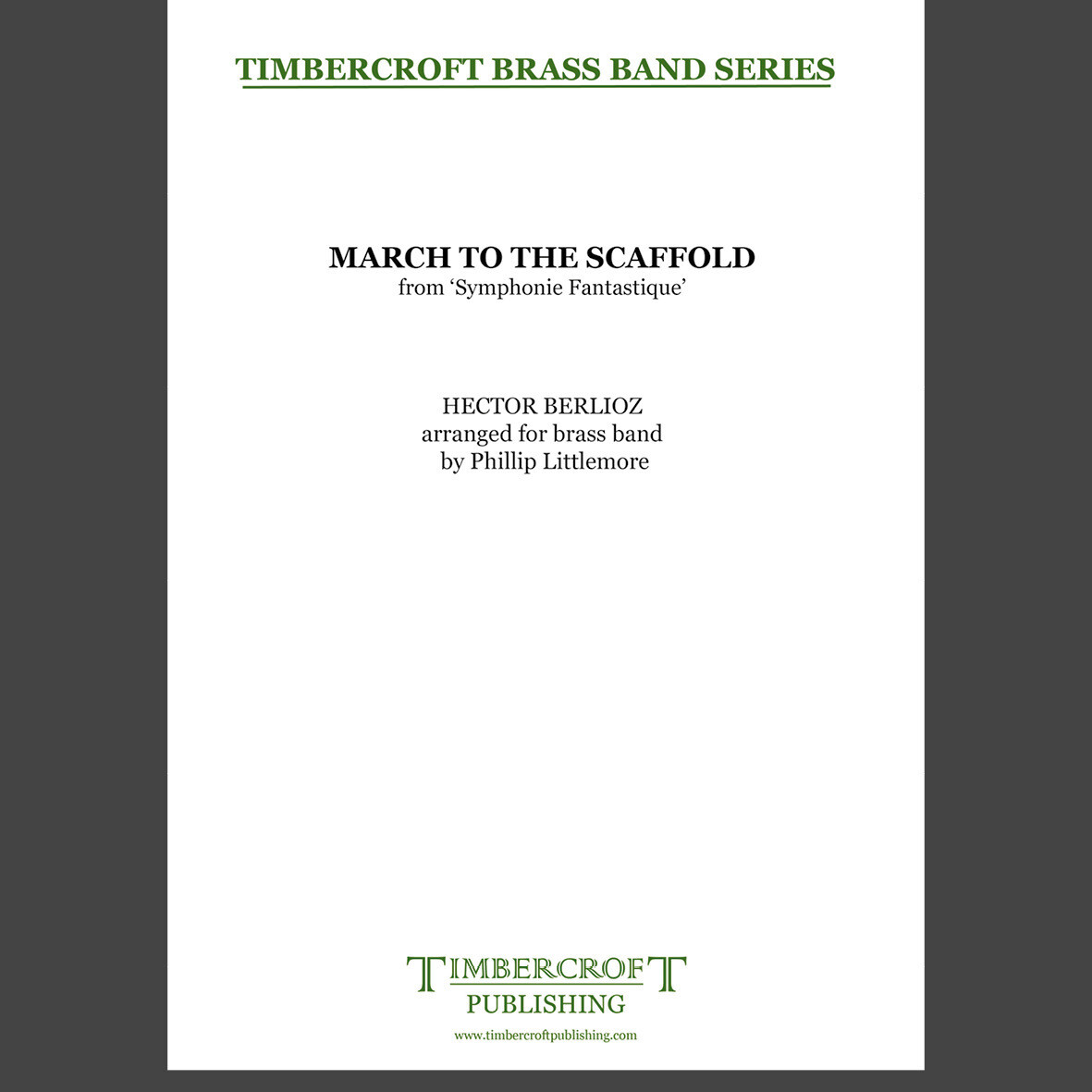 £35.00
£35.00March to the Scaffold - Hector Berlioz arr. Phillip Littlemore
The March to the Scaffold is the fourth of five movements from Hector Berlioz's Symphonie Fantastique. The symphony tells the story of a troubled young man and his quest to find his true love. This true love is depicted in the music by a melody known as a idee fixe (fixed idea) and appears in every movement.The fourth movement takes on a nightmarish character as having taken opium, the young man dreams that he has killed his true love and is about to be executed for his crime. The music is an unrelenting forced march to the scaffold. The idee fixe appears only once in this movement, as a sudden reminiscence just before the guillotine strikes the young man's head before the movement comes to an end with a perversely joyous conclusion.Duration: 4'30"Difficulty: 3rd Section and above
Estimated dispatch 5-7 working days
